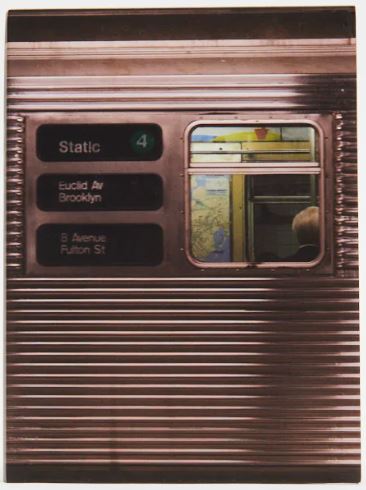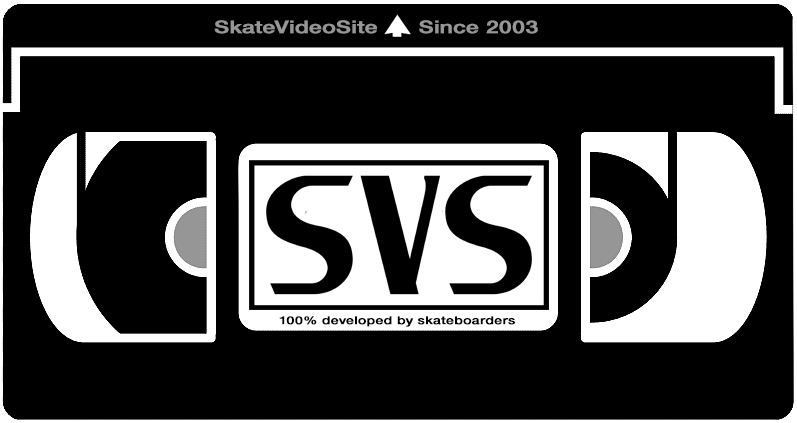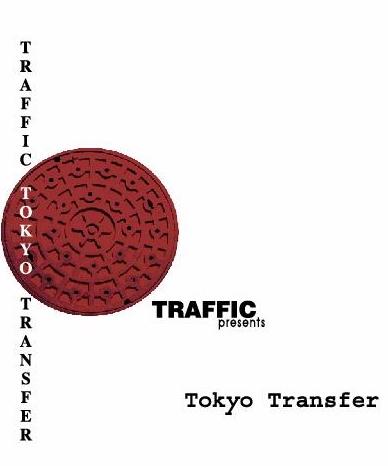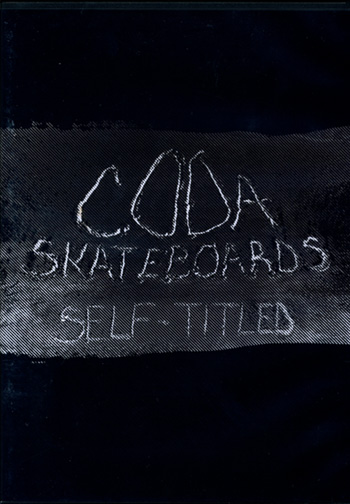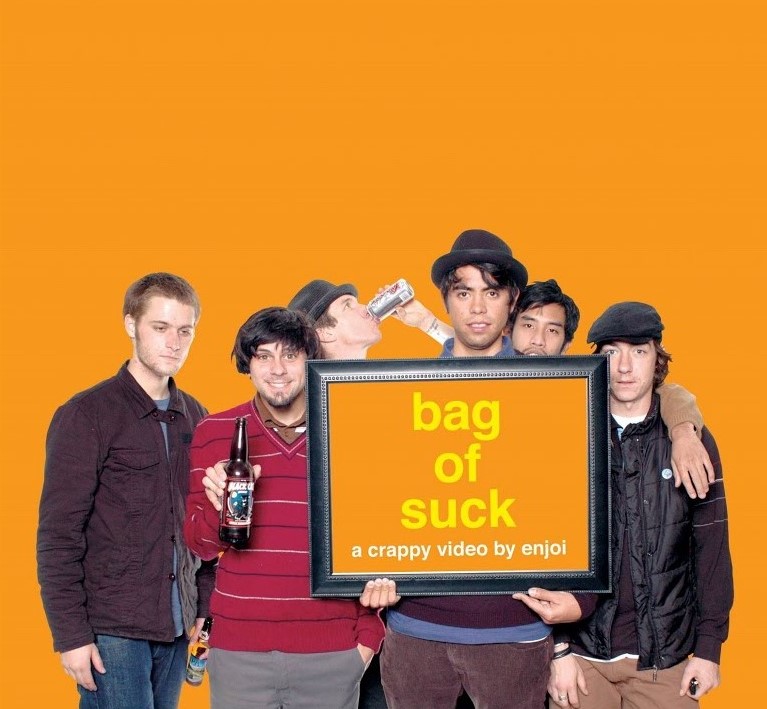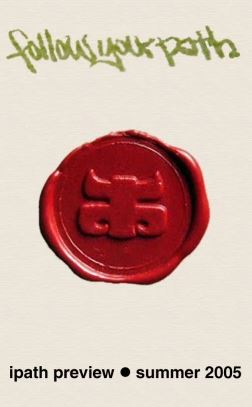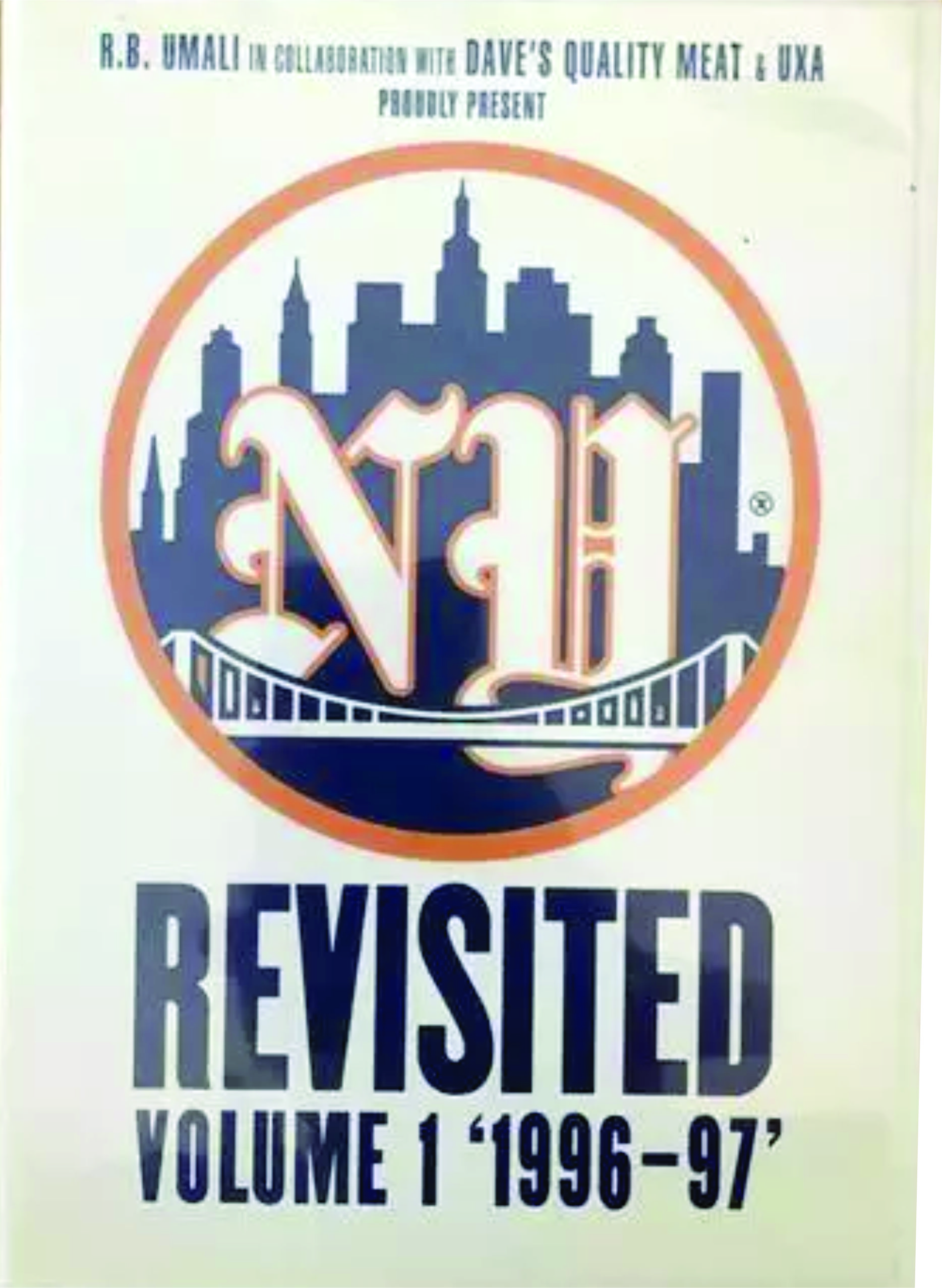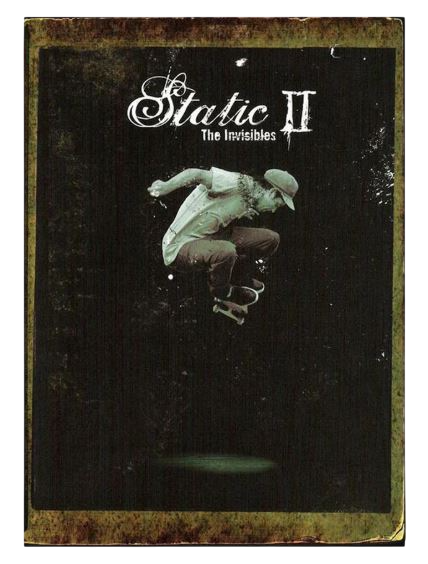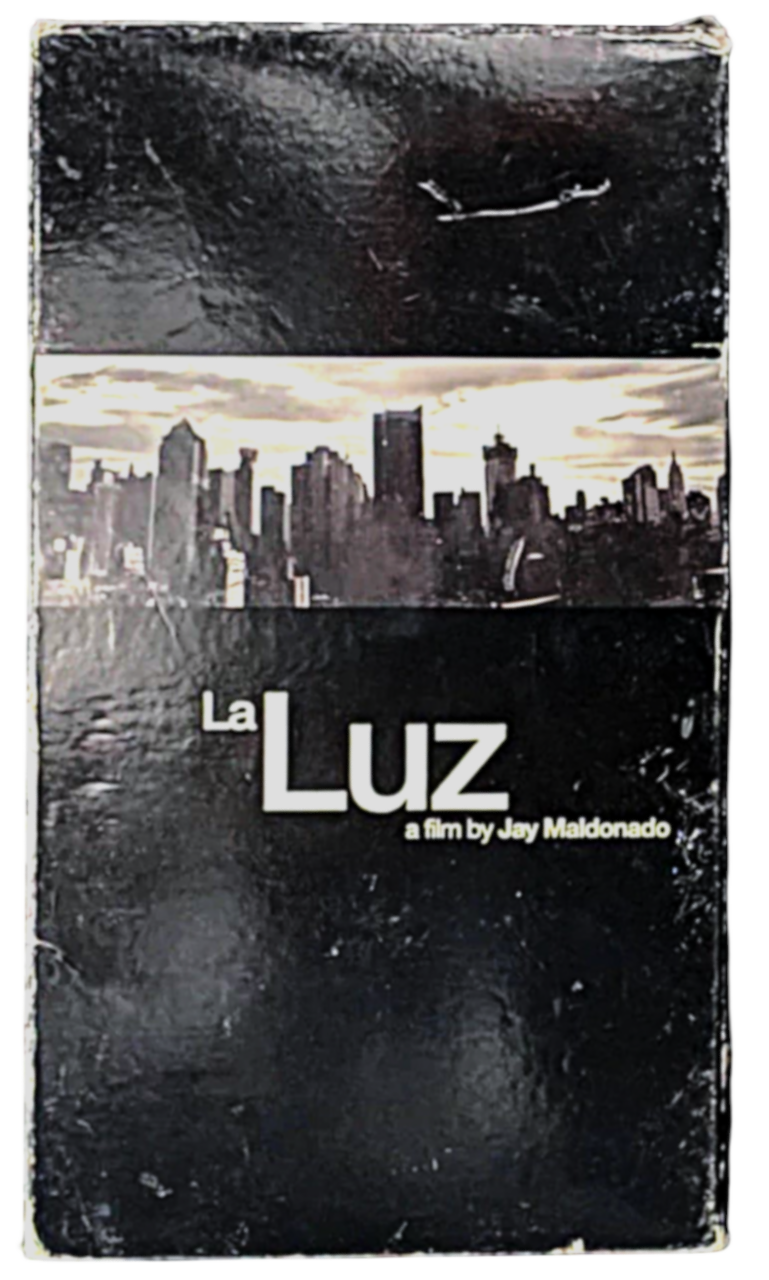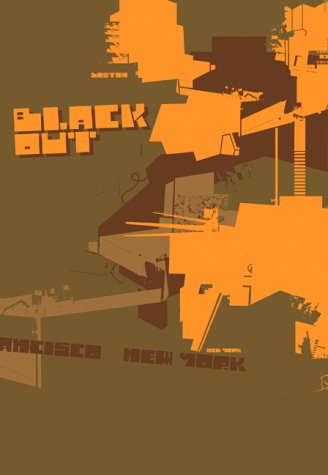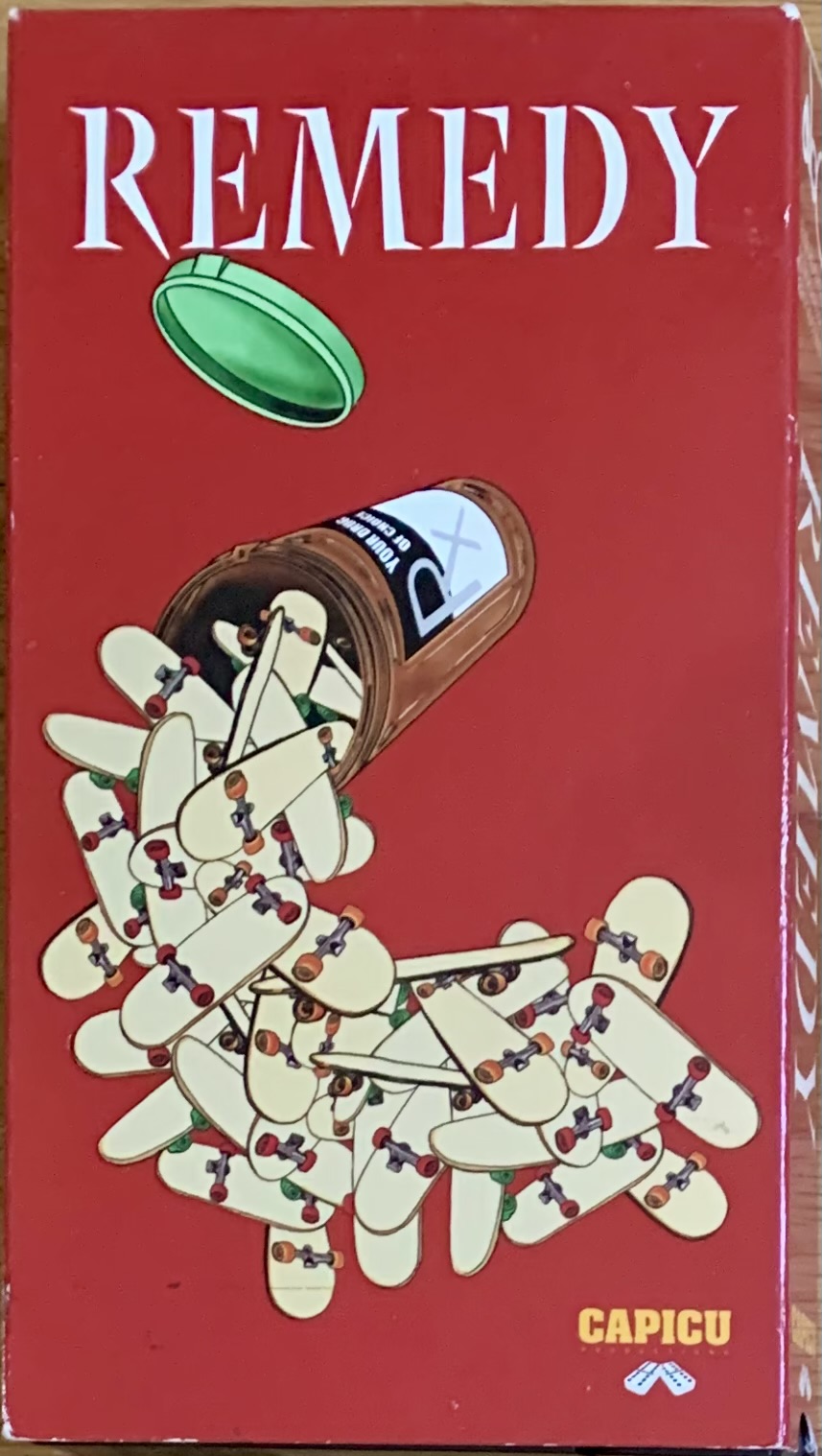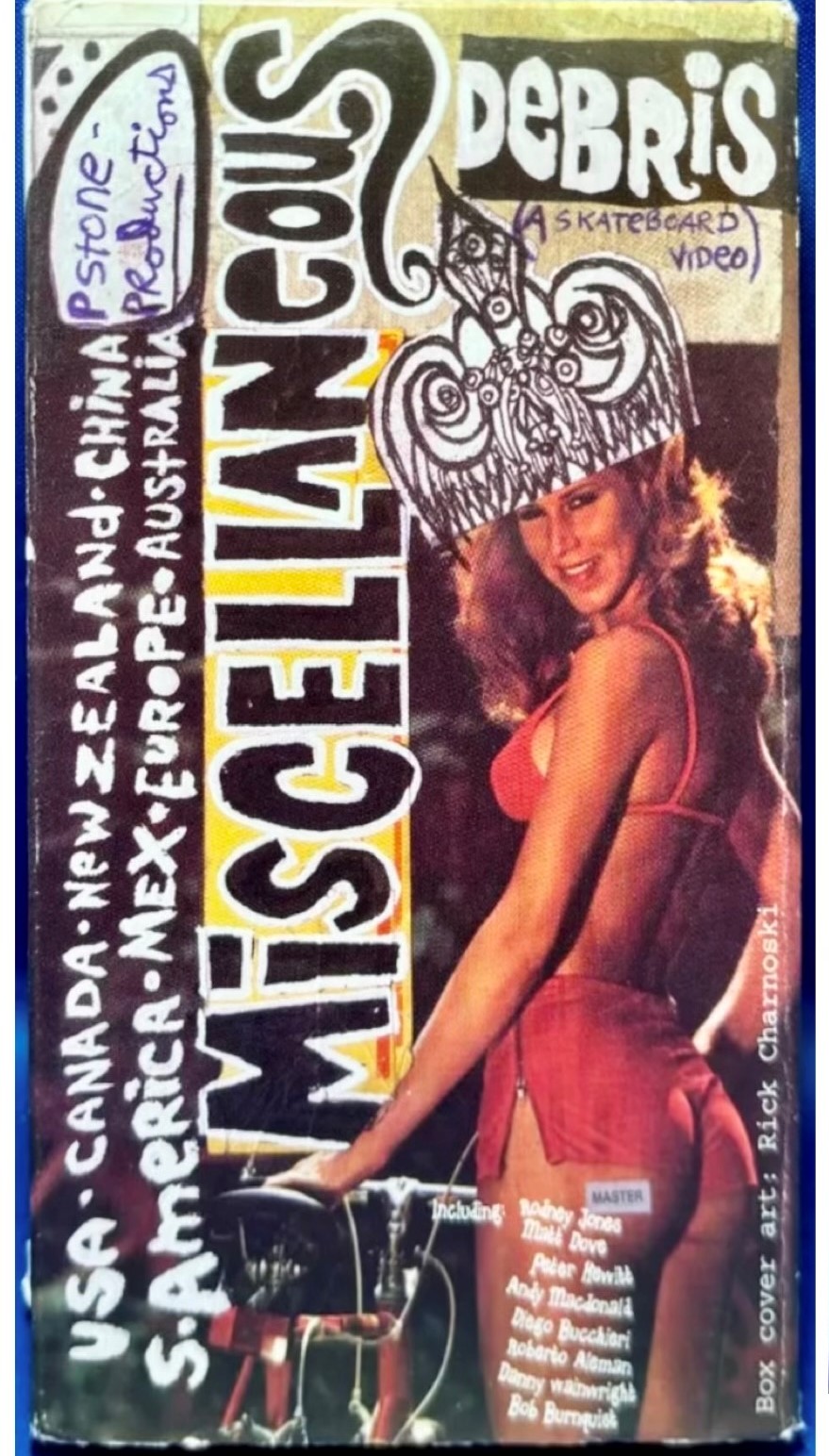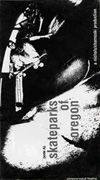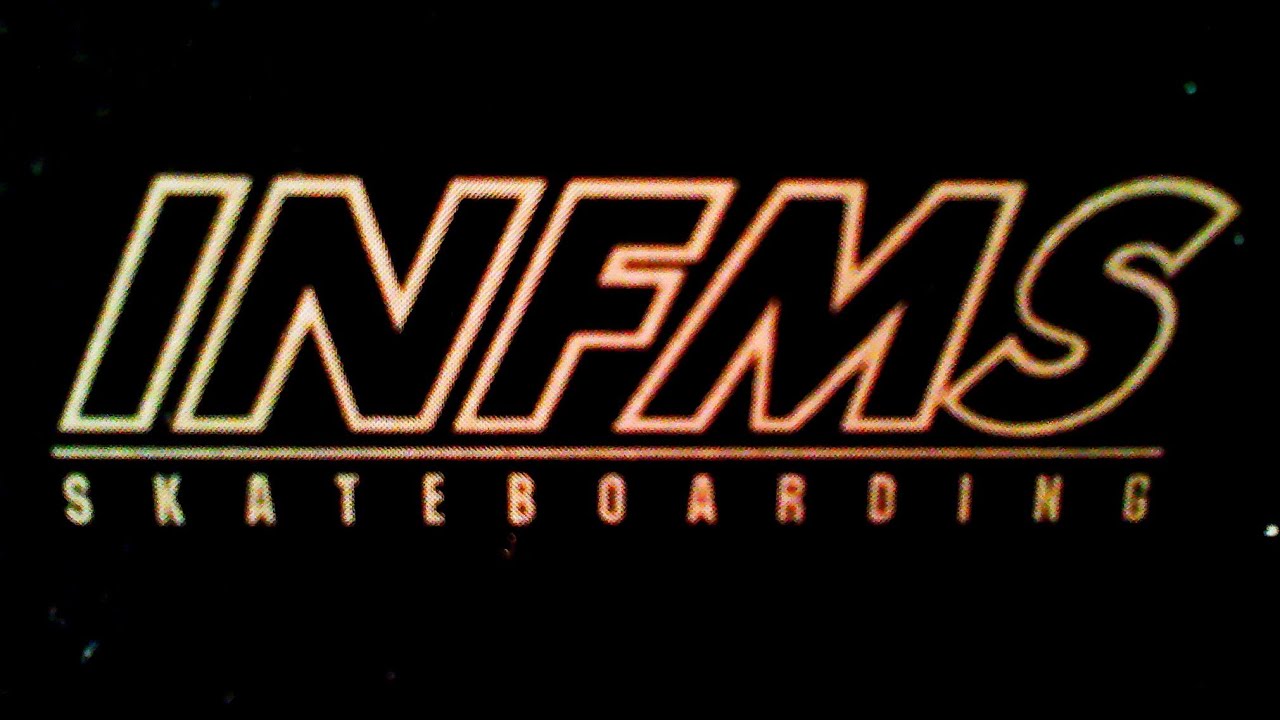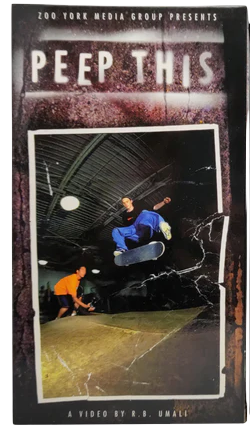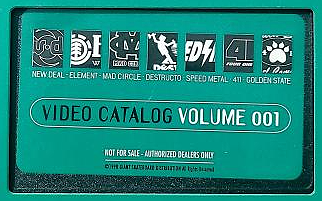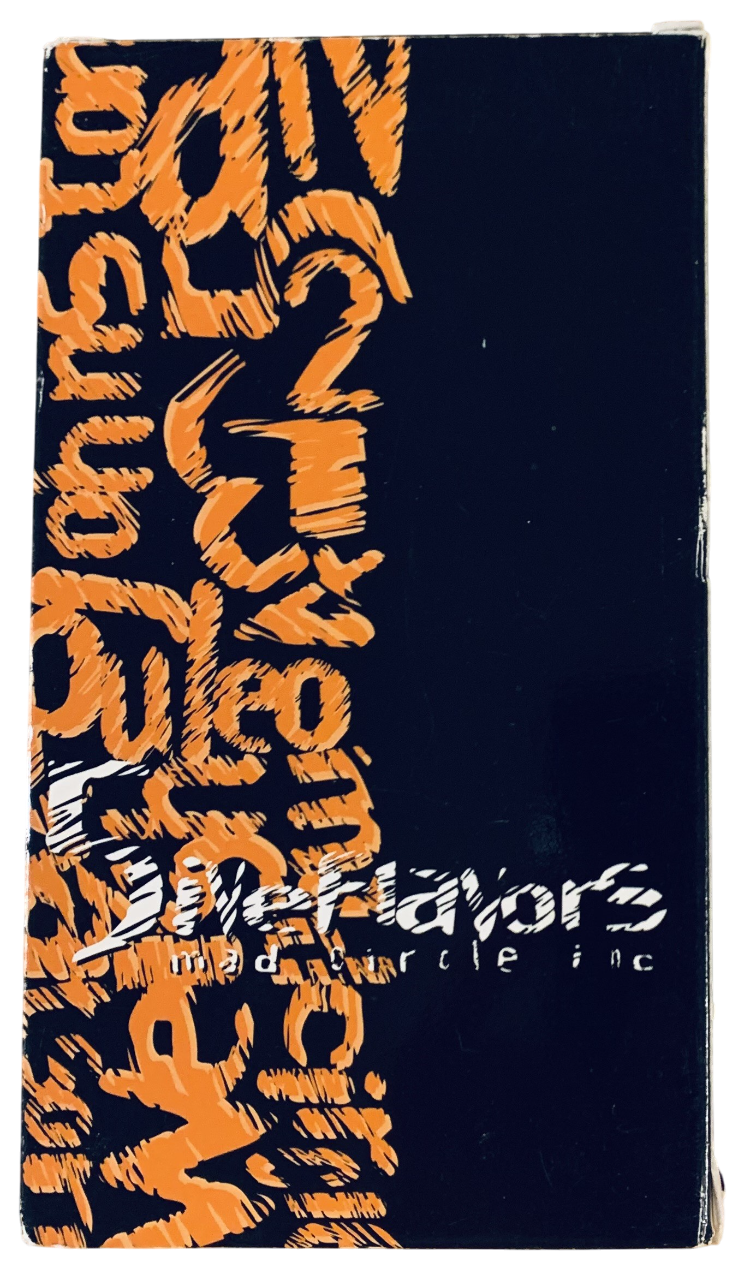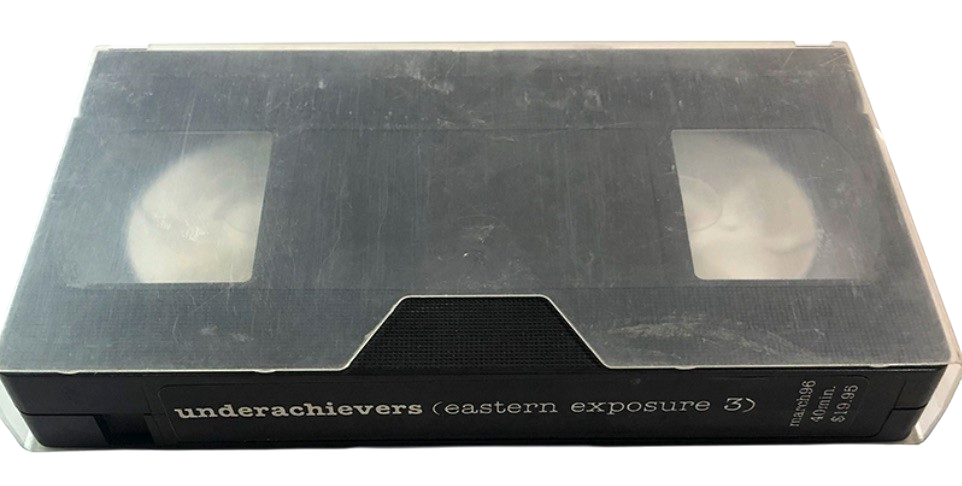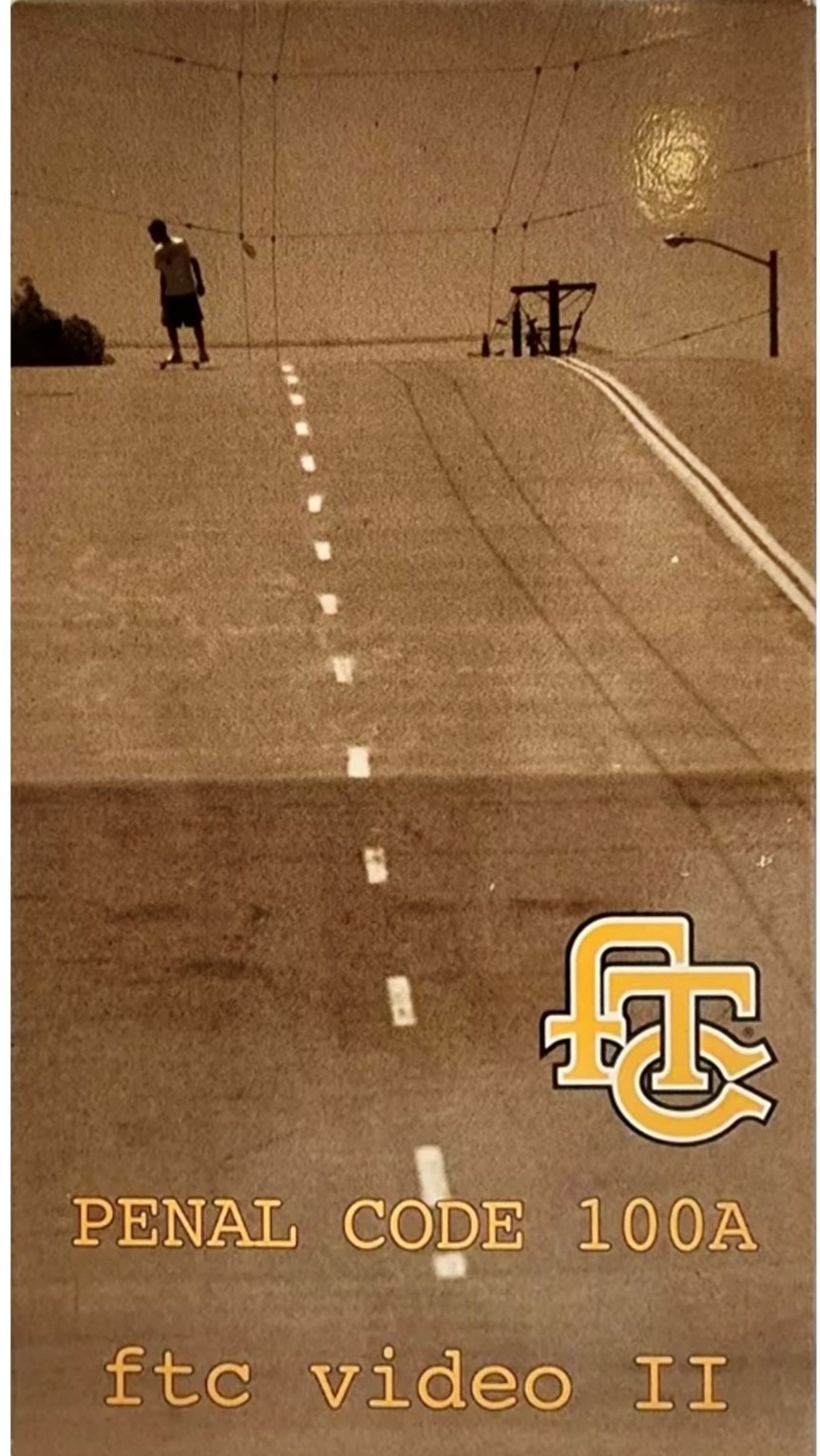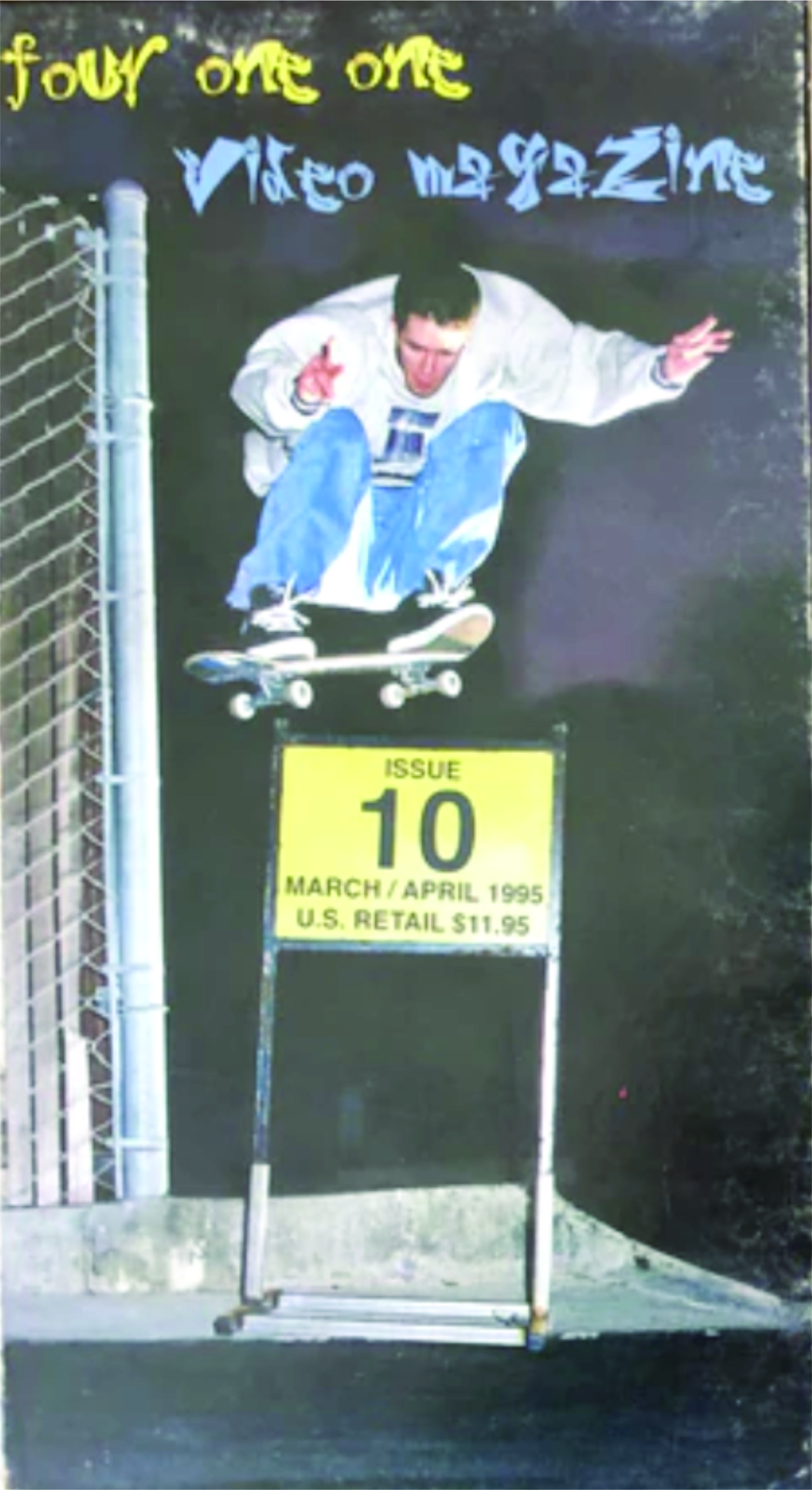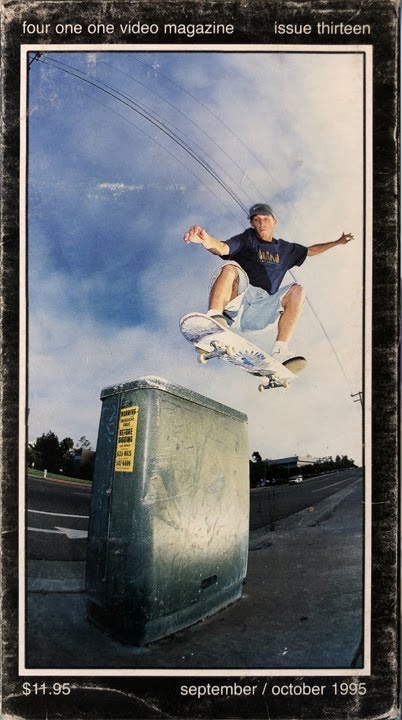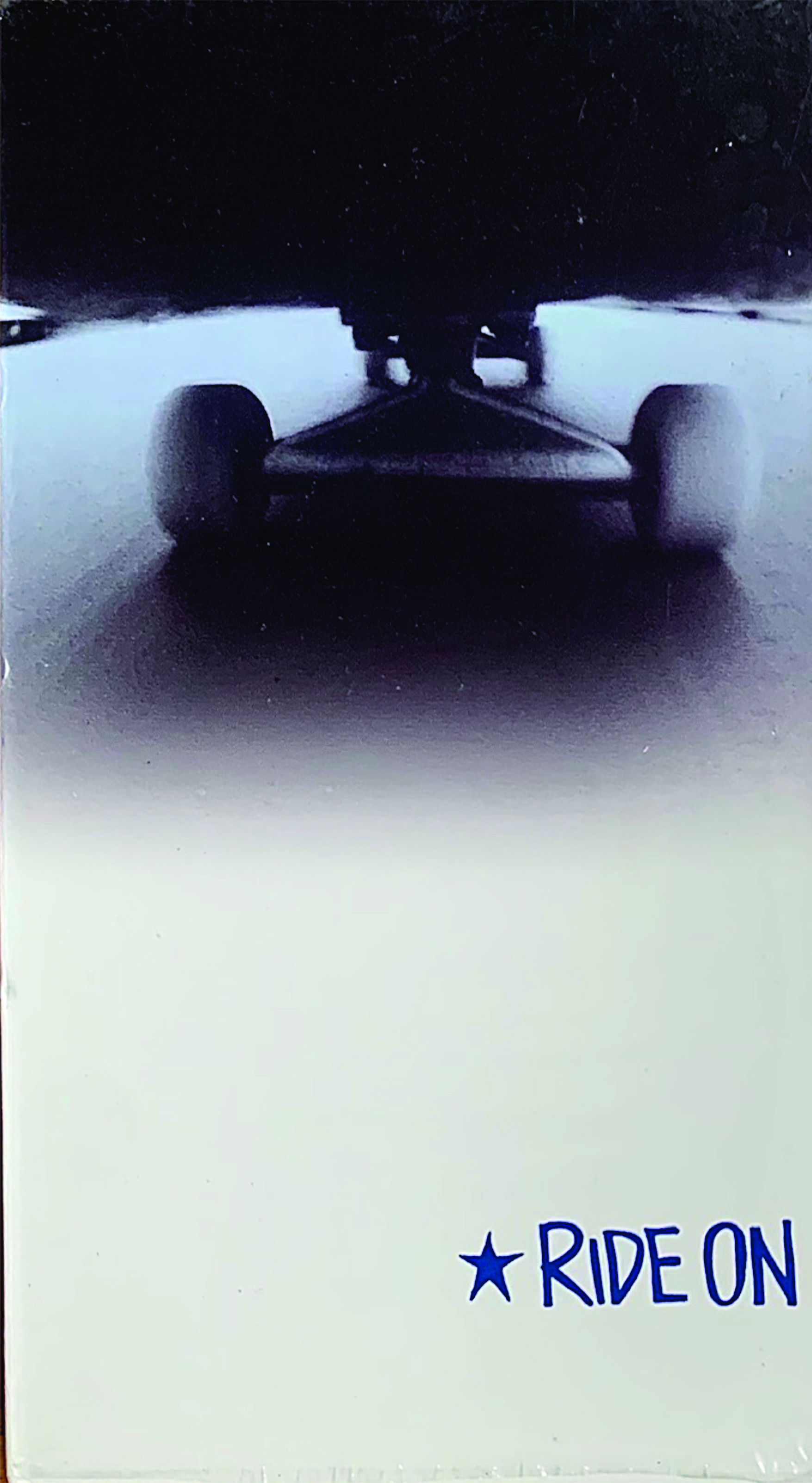Bobby Puleo
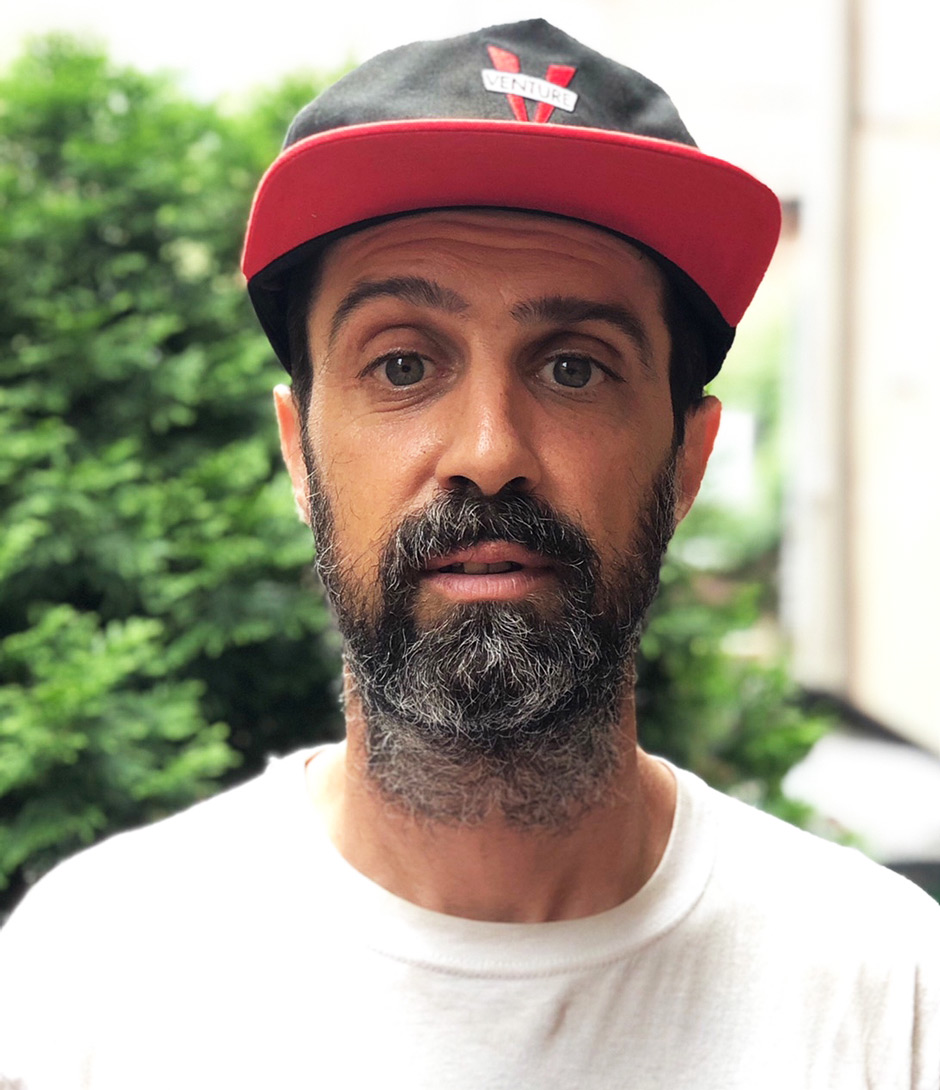
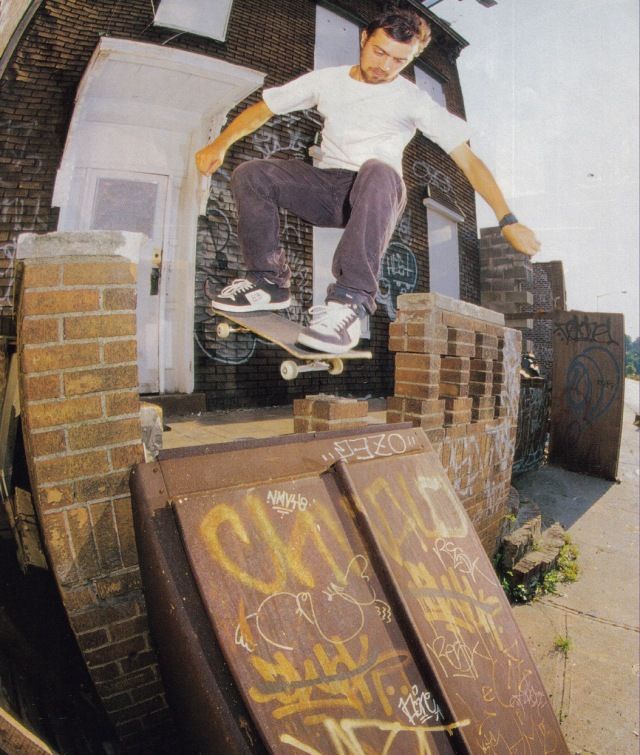
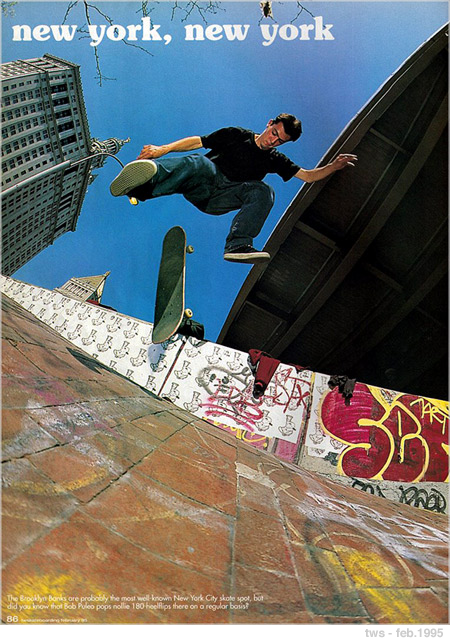



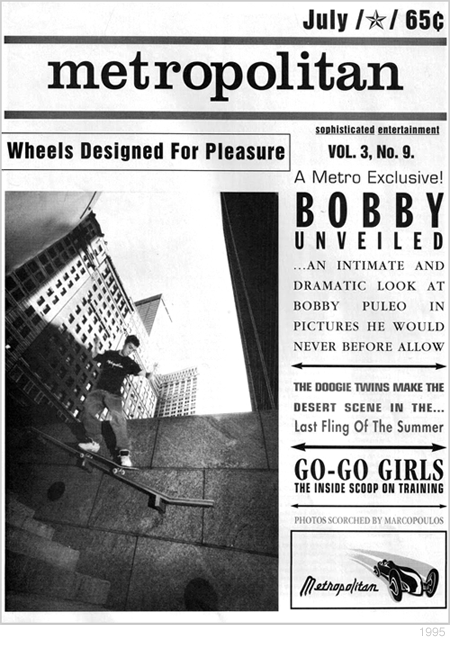
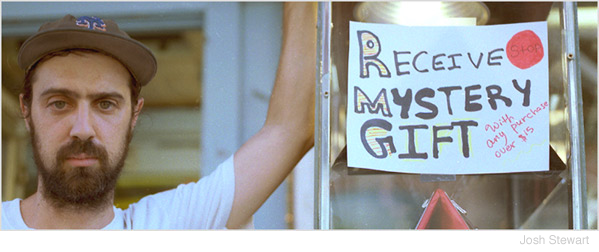
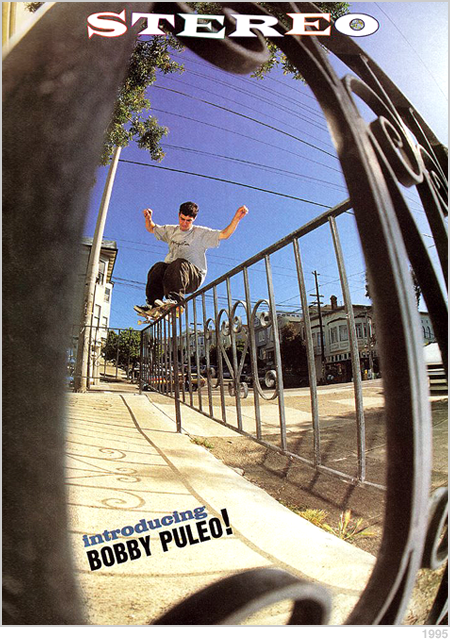
Instagram
Same Old Instagram
[2025] Leo Fitzpatrick & Bobby Puleo Walkthrough Larry Clark’s 92-95 Photography Exhibition at Ruttkowski68
[2025] Beyond Boards Podcast - Episode 96 Bobby Puleo
[2025] Bobby Puleo: The Soul of NYC Streets | Short Skateboarding Documentary
[2025] Reviewing the Ride: A Roll Through at the Museum of the Moving Image [2025]
[2024] Village Psychic: Bobby Puleo on Cellar Doors
[2024] Village Psychic - Searching For the First Cellar Door Skated on Film with Bobby Puleo
[2023] 4Ply Mag: Bobby Puleo
[2022] A London Mudlark meets a New York StreetLark - The Streets of New York City are Bobby Puleo's River
[2021] Slam City: OFFERINGS: BOBBY PULEO
[2021] The Wriders Project – featuring Bobby Puleo (2021)
[2019] The Nine Club: Bobby Puleo Episode 133
[2019] Thrasher - Out There: Bobby Puleo
[2019] Slam City: BOBBY PULEO INTERVIEW
[2017] SOLO Skate Mag: Bobby Puleo interviewed by Pontus Alv “I Never Left”
[2015] Bobshirt: Bobby Puleo bobshirt.com interview
[2013] Chrome Ball: interview #61: bobby puleo
Mike Regan - Bobby Puleo Interview
Bobby Puleo - 90s 411vm Compilation



+3






Skater
Filmmaker
26 skating appearances
2 filmed videos
Bio
Hometown: Clifton, New Jersey, United States
Stance: Regular
Bobby Puleo is a renowned skateboarder and artist whose career spans decades, intertw...
Links
20 links
Videos
Static IV & Static V
(2014)
independent
(35 min)
Forrest Kirby,
Kenny Reed,
Jeff Lenoce,
Danny Renaud,
Paul Shier,
Ben Gore,
Ricky Oyola,
Bobby Puleo,
Olly Todd,
Jack Sabback,
Nate Broussard,
Quim Cardona,
Tony Manfre,
Pontus Alv,
Damian Smith,
Mike Cardona,
Jimmy Lannon,
Rich Adler,
Jerome Campbell,
Vivien Feil,
Pat Stiener,
Soy Panday,
Lee Berman,
Mark Wetzel ("Mark The Shark"),
Jake Johnson,
Kevin Coakley,
Leo Valls,
Aaron Herrington,
Hjalte Halberg,
Joey Pressey,
Dustin Eggeling,
Snowy,
Jahmal Williams
Added:
Thursday, October 02, 2014
CODA - Self Titled
(2007)
full-length
(23 min)
Bobby Puleo,
Jack Sabback,
James Frankhouse,
Ricky Espinoza,
Pat Smith,
Kevin Brennan,
Jerry Mraz,
Adam Young,
Jeff Ricker,
Dave Caddo,
Mark Weeks,
Pete Sutfin,
Dave Mitchael,
Conor Fay,
James Broderick ("Sperm"),
Davie Urfman,
Cricket,
Greg Huff,
Ban Bartle,
Mississippi Joe,
Scott Koerner,
Max Price,
Sweet Waste
Added:
Unknown
Static III
(2007)
independent
(49 min)
Bobby Worrest,
Clint Peterson,
Forrest Kirby,
Josh Kalis,
Kenny Reed,
Mark Gonzales ("Gonz"),
Pete Eldridge,
Danny Fuenzalida,
Michael Mackrodt,
Danny Renaud,
Paul Shier,
Nick Jensen,
Ben Gore,
Bobby Puleo,
Olly Todd,
Jack Sabback,
Nate Broussard,
Danny Supa (Supasiriratana),
Kenny Hughes,
Quim Cardona,
Tony Manfre,
Dan Pensyl,
Pat Smith,
Danny Gotimer,
Zach Lyons,
Jahmal Williams,
Brad Johnson,
Nikhil Thayer,
Jason Wussler,
Todd Jordan,
Will Harmon,
Billy Rohan,
Anthony Correa,
Brian Delatorre,
Rodney Torres,
Jan Kliewer,
Andy Bautista,
Jerry Mraz,
Erich Bielefeldt,
Joel Meinholz,
Shaun Williams,
Jimmy McDonald,
Dave Caddo,
Dave Abair,
Rich Adler,
Anthony Williams,
Josh Dowd,
Steve Durante,
German Nieves,
Vivien Feil,
David Clark,
Pat Stiener,
Soy Panday,
Lee Berman,
Brad Cromer,
Conor Fey,
Dan Plunkett,
Joe Staley,
Aaron Szott,
Tino Razo,
Steve Brandi,
Curtis Rapp,
Daniel Kinloch,
Rory Milanes,
Kevin Coakley,
Hisashi Nakamura,
George Hanuschak,
Akira Mowatt,
Joey Pressey,
Dustin Eggeling,
Avi Luzia,
Lou Sarowsky,
Christian Bruntan,
Tom Lock
Added:
Unknown
Enjoi - Bag of Suck
(2006)
full-length
(46 min)
Brandon Biebel,
Cairo Foster,
Caswell Berry,
Chris Haslam,
Clint Peterson,
Colt Cannon,
Jerry Hsu,
Louie Barletta,
Daryl Angel,
Justin Strubing,
Jason Adams ("The Kid"),
Jose Rojo,
Clark Hassler,
Cooper Wilt,
Jani Laitiala,
Shiloh Greathouse,
Bobby Puleo,
Jayme Fortune,
Brad Staba,
Lance Mountain,
Tony Cox,
Tony Manfre,
Ricky Espinoza,
Wes Tonascia,
Dave Mayhew,
Nestor Judkins,
Pancho Moler,
Sean Payne,
Matt Eversole,
Dave Rosenberg,
Peter Raffin,
Mike Matilainen,
Mark Whiteley,
Andrew Pearl,
Jon Nguyen,
Mario Guel,
Steve Farrell,
Sami Miettinen,
Joe Brook,
Warren Jenkins,
Matt Hathaway,
Jafa Jake,
Marc Johnson
Added:
Unknown
independent
(20 min)
Gino Iannucci,
Josh Kalis,
Keith Hufnagel ("Huf"),
Stevie Williams,
Bobby Puleo,
Keenan Milton,
Clyde Singleton,
Danny Supa (Supasiriratana),
Quim Cardona,
Lennie Kirk,
Javier Nunez,
Harold Hunter,
Mike Cardona,
Vinny Ponte,
Maurice Key,
Jeff Pang (Jefferson),
Rob Gangemi ("Robbie"),
Anthony Correa,
Rodney Torres,
Andy Bautista,
German Nieves,
Eli Gesner,
Peter Bici,
Jay Maldonado,
Hamilton Harris,
Chris Keeffe,
Steven Gales,
Joey Alvarez,
Nick Lockman,
Jeff Simmons,
Keith Harrison,
Ryan Hickey,
N.A.,
Lamont Macintosh,
Jamie Story,
Jones Keeffe,
Justin Pierce,
Loki,
Ray Wong,
Marco Cammayo,
Mike Hernandez,
Peter Huynh,
Ivan Perez
Added:
Thursday, May 02, 2019
The Filmbot Files
(2005)
independent
(45 min)
Don Nguyen ("Nuge"),
Greg Lutzka,
Lizard King (Mike Plumb),
Marty Murawski,
Paul Rodriguez ("P-Rod"),
Chris Dobstaff,
Corey Sheppard,
Daryl Angel,
Richie Belton,
Wade Desarmo,
Jason Wakuzawa,
Mike Hastie,
Paul Trep (Trepanier),
Paul Machnau,
Gailea Momolu,
Bobby Puleo,
Derek Fukuhara,
Robert Lim,
Sven Kilchenmann,
Chet Thomas,
Justin Roy,
Charlie Thomas,
Pierre-Luc Gagnon ("PLG"),
Seth Cheeks,
DJ Chavez,
Ryan Lay,
Phil Ladjanski ("Skinny"),
James Atkin,
Jason Masse,
Rob Base,
Paul Otvos,
Austin Namba,
Steve Chavosky,
Mark Murawski,
Marc Johnson
Added:
Unknown
Static II: The Invisibles
(2004)
independent
(52 min)
Aaron Suski,
Benny Fairfax,
Cairo Foster,
Darrell Stanton,
Forrest Kirby,
Guru Khalsa,
Jake Rupp,
Jeremy Holmes,
Jerry Hsu,
Josh Kalis,
Kenny Reed,
Raymond Molinar,
Ryan Nix,
Conhuir Lynn,
Fred Gall,
Kerry Getz,
Reese Forbes,
Zered Bassett,
Kevin Taylor,
Ian Gow,
Jeff Lenoce,
Danny Renaud,
Ed Selego,
Rob Pluhowski,
Paul Shier,
Nick Jensen,
Wayne Patrick,
Ricky Oyola,
Bobby Puleo,
John Igei,
Brian Brown,
Olly Todd,
Jack Sabback,
Jon Newport,
Nate Broussard,
Rob Welsh ("Wu Welsh"),
Andrew Brophy,
Paul Zitzer,
Satva Leung,
Clyde Singleton,
Danny Supa (Supasiriratana),
Kenny Hughes,
Matt Field,
Joe Tookmanian,
Tim O'Connor,
Ocean Howell,
Colin Kennedy,
Toby Shuall,
Brad Hiser,
Jerry Fowler,
Damian Smith,
Vanik Hacobian,
Nikhil Thayer,
John Kroesser,
Will Harmon,
Anthony Correa,
Joey Pepper,
Jimmy Lannon,
AJ Mazzu,
Dustin Charlton,
Brian Edwards,
Andy Bautista,
Nick Matlin,
Paul McElroy,
Darren Harper,
Nolan Lee,
Joel Meinholz,
Devon Connell,
Rickie Dixon,
Chris Williams,
Rich Adler,
Ruben Garcia,
Jay Giroux,
Trace Saylor,
Josh Dowd,
Steve Durante,
German Nieves,
Chris Pulman,
Billy Roper,
Pat Stiener,
Lee Berman,
Andy Honen,
Randy Wilson,
Jim Gorecki,
Tino Razo,
Mike Nalls,
Paul Otvos,
Brian Tucci,
Steve Brandi,
Paul Deoliveira,
Daniel Kinloch,
David Kinloch,
Matt Jones,
Charlie Young,
Joey Pressey,
Jack Curtin,
Brian Dale,
Sean Stockton,
Bernie Rea,
Omar Alverio,
Mike Manidis,
Jacob Sawyer,
Seth Curtis,
Simon Bingham,
Mike Halloway,
Forrest Hagerman,
Tyler Oakley,
Matt Ashby,
Travis Sales,
Brian Botelho,
Quentin Debrey,
Lev Tanju,
Brent Pontin,
James Edson,
Adbias Rivera,
Matt Giles,
Jamey Azelvandre,
David Arujo,
Sam Weintzen,
Graham Bickerstaff
Added:
Unknown
La Luz
(2002)
independent
(21 min)
Nick Dompierre,
Anthony Shetler,
Bobby Puleo,
Jack Sabback,
Tony Cox,
Danny Falla,
Dan Pensyl,
Jon Hoisington,
Andy Pitts,
Josh Maready,
Daniel Haney,
Pat Smith,
Zach Hudson,
Chris Trembley,
Jake Lewis,
Charles Lamb,
Louie Louie,
Andy Bautista,
Paul McElroy,
Ryan Miller,
Geo Moya (Giovanni),
Aaron Szott,
Rob Campbell,
Shawn Connolly,
Jub,
Scot Schwartz ("Yancy"),
Rodney Davis,
Kerel Roach
Added:
Unknown
independent
(40 min)
Cairo Foster,
Caswell Berry,
Dennis Busenitz,
Heath Kirchart,
Jake Rupp,
Jereme Rogers,
Nate Jones,
Chad Muska,
Justin Strubing,
Karl Watson,
Kerry Getz,
Mike Rusczyk,
Stefan Janoski,
Van Wastell,
Zered Bassett,
Jose Rojo,
Paul Machnau,
Danny Renaud,
Mike Wright,
Bobby Puleo,
Eli Reed,
Brian Brown,
Jon Newport,
Pat Corcoran,
Rob Welsh ("Wu Welsh"),
Gershon Mosley,
Satva Leung,
Ryan Johnson,
Tony Cox,
Emeric Pratt,
Ricky Espinoza,
Dan Pensyl,
Lennie Kirk,
Pat Smith,
Paulo Diaz ("Ollie Khan"),
Brian Hoard,
Matt Milligan,
Dave Hupp,
Dave Mayhew,
Jesus Fernandez,
Kien Lieu ("Donger"),
Jerry Fowler,
Adam Crew,
Anthony Mosley,
Damian Smith,
Lucian Moon,
Mike Chin ("Mikey"),
Josh Falk,
Vanik Hacobian,
Pancho Moler,
Pat Washington,
Jason Wussler,
Will Harmon,
Steve Nardone,
Zeb Weisman,
Billy Rohan,
Anthony Correa,
Burton Smith,
Joey Pepper,
Stevie Lewis,
Jesse Hotchkiss,
AJ Mazzu,
Jared Faustino,
Gary Smith,
Seth Cheeks,
Tim Achille,
Sean McGinnis,
Geo Moya (Giovanni),
Jason Masse,
Jon Janeway,
Ian Reid,
Travis Graves,
Brannon John,
Andrew McGraw,
Joel Jutagir,
Brian Dale,
Hiroki,
Kevin Besset,
Joe Valdez (Joealbert),
Phil Kent,
Quinn,
Terry Mattheus,
Jon Wetherbee,
Vaughn Baker,
Cock Piss,
Terance,
Pete Helicar,
Gustav,
Brian Burman,
Aaron Morgan,
Heath Sherrat,
Ethan Indorf,
Sean Stockton,
Alen Russell,
Old Dirty Hoovis,
Tom Curren,
Jay Margolis,
Ben Allen,
Howard Glover,
Albie Solana,
Peruvian Killa,
Mike Graham,
Nick Briggs,
Jon Wisdom,
Doug Moore,
Brad Tucker,
Ryan Zepalates,
Blair Taylor,
Jesse Jenkins,
Pete Gardini,
Marc Johnson,
Jerry Hsu,
Aaron Vandenbulke
Added:
Unknown
Capicu - Remedy
(2001)
independent
(30 min)
Mike Wright,
Bobby Puleo,
Danny Falla,
Pat Smith,
Harold Hunter,
Jake Lewis,
Burton Smith,
Louie Louie,
Rodney Torres,
Nolan Lee,
Barry Scott,
Geo Moya (Giovanni),
Rob Campbell,
Scot Schwartz ("Yancy"),
Rodney Davis,
Kerel Roach,
Alfred Bobe,
Sho Ma,
Shea Gonyo,
Indo Jack,
Uris,
Alby,
Marcus Covington,
Chauncey
Added:
Unknown
Miscellaneous Debris
(2001)
independent
(35 min)
Mark Appleyard,
Alex Chalmers,
Donny Barley,
Dustin Dollin,
Ethan Fowler,
James Craig,
Javier Sarmiento,
Max Schaaf,
Bastien Salabanzi,
Brian Anderson ("BA"),
Carlos De Andrade,
Chet Childress,
Danny Way,
Ed Templeton,
Fabrizio Santos,
Justin Strubing,
Mike Vallely,
Rick McCrank,
Richie Belton,
Chad Tim Tim,
Jo Lorenz,
Florentin Marfaing ("Flo"),
Mark Baines,
Ricky Oyola,
Bobby Puleo,
Omar Hassan,
Gershon Mosley,
Mike Peterson,
Renton Millar,
Dayne Brummet,
Gianni Zattoni,
Paul Zitzer,
Alex Gavin,
Al Partanen,
Bucky Lasek,
Jeff Grosso,
John Cardiel,
Lance Mountain,
Rodrigo Tx (Teixeira),
Rune Glifberg,
Ryan Wilburn,
Emeric Pratt,
Jake Stewart,
Adam McNatt,
Neil Heddings,
Steve Bailey,
Scott Smiley,
Mike Frazier,
Salman Agah,
Paul Carter,
Jesse Paez,
Alan Petersen,
Karma Tsocheff,
Howard Cooke,
Brian Howard,
Alphonzo Rawls ("Alf"),
Ray Barbee,
Mike Crum,
Steve Alba ("Salba"),
Oli Buergin,
Pete Colpits ("The Ox"),
Jesse Fritsch,
Rick Charnoski,
Oscar Jordan,
Bill Weiss,
Guy Kämpfen,
Gabe Ryan,
Matt Moffett,
Jr Neves,
Alain Goikoetxea,
Lee Ralph,
Sandro Dias,
Lee Dainton,
Matt Pritchard,
Tony Farmer,
Brian Patch,
Ben Krahn,
Tino Razo,
Juergen Horrwarth,
Adrian Morales,
Aric Sanders,
Eryk Gaj,
Ibon Mariño,
Antonius Dintcho (“Toad”),
Avi Luzia,
Joey Tershay,
Billy Milsap,
Christian Brox,
Spittle,
Wolney Santos,
Henry Daly,
Sam Ritz,
Auggie Sauza,
Sneaky,
Matt Davies,
Tony Hawk,
Arto Saari,
Eric Koston
Added:
Unknown
Zoo York - Peep This
(1999)
full-length
(24 min)
Forrest Kirby,
Josh Kalis,
Keith Hufnagel ("Huf"),
Rob Dyrdek,
Scott Johnston,
Stevie Williams,
Fred Gall,
Karl Watson,
Mike Wright,
Wayne Patrick,
Bobby Puleo,
Kris Markovich,
Giovanni Reda,
Danny Supa (Supasiriratana),
Quim Cardona,
Rick Jaramillo,
Javier Nunez,
Jerry Fowler,
Harold Hunter,
Vanik Hacobian,
Airto Jackson,
Vinny Ponte,
Andre Page,
Nikhil Thayer,
Todd Jordan,
Rob Gangemi ("Robbie"),
Steve Nardone,
Anthony Correa,
Ben Liversedge,
Rodney Torres,
Phillip Vaughn,
Andy Bautista,
Teddy Powell,
German Nieves,
Geo Moya (Giovanni),
Ian Reid,
Peter Bici,
Alex Corporan,
Sean Kelling,
Akira Mowatt,
Giovanni Estevez,
Ben Allen,
Chris Keeffe,
Jeff Simmons,
Jamie Story,
Jones Keeffe,
Mike Hernandez,
Mike Holloway,
Snro,
Paul Leung,
Kew,
Nesio Sollon,
Scott Schwartz,
George Clinton
Added:
Unknown
independent
(32 min)
Bam Margera,
Donny Barley,
Ethan Fowler,
Gino Iannucci,
Keith Hufnagel ("Huf"),
Max Schaaf,
Mike Carroll,
Willy Santos,
Chris Senn,
Danny Way,
Ed Templeton,
Fred Gall,
Jason Dill,
Mike Vallely,
Reese Forbes,
Kevin Taylor,
Colin McKay,
Mike Maldonado,
Ricky Oyola,
Bobby Puleo,
Kris Markovich,
Paul Zitzer,
Charlie Wilkins,
Kenny Hughes,
Matt Field,
Quim Cardona,
Rune Glifberg,
Ryan Wilburn,
Tas Pappas,
Andy Stone,
Tim O'Connor,
Brian Seber,
Tom Boyle,
Mike Frazier,
Brian Howard,
Andy MacDonald,
Mike Cardona,
Matt Reason,
Pancho Moler,
Panama Dan (Daniel Zimmerman),
Jahmal Williams,
Kareem Campbell,
Jeff Pang (Jefferson),
Rob Gangemi ("Robbie"),
Brian Smith,
AJ Mazzu,
Rodney Torres,
Joe Pino,
Jerry Fisher,
Steve Ball,
Peter Bici,
Steven Cales,
Hamilton Harris,
Chris Keeffe,
Jeff Simmons,
Ryan Hickey,
Ivan Perez,
Chad Kramer,
Brian Stevens,
Gene Rosmarin,
Mike Bell,
Serge Trudnowski,
Jr Cronheim,
Rob Erickson,
Frank Natiello
Added:
Unknown
FTC - Penal Code 100A
(1996)
full-length
(22 min)
Eric Koston,
Keith Hufnagel ("Huf"),
Max Schaaf,
Mike Carroll,
Rick Howard,
Scott Johnston,
Karl Watson,
Marcus McBride,
Mike York,
Jeron Wilson,
Chico Brenes,
Bobby Puleo,
Richard Mulder,
Eric Pupecki,
Lee Smith,
Shamil Randle,
Gabriel Rodriguez,
Ben Sanchez,
Keenan Milton,
Guy Mariano,
Quim Cardona,
Lennie Kirk,
Rob Carlyon,
Rudy Johnson,
Pepe Martinez,
Jovontae Turner,
Spencer Fujimoto,
Jesse McMillin,
Greg Hunt,
Phil Shao,
Pat Washington,
Lavar Mcbride,
Fabian Alomar,
Jeff Pang (Jefferson),
Rob Gangemi ("Robbie"),
Drake Jones,
Weston Correa,
Ben Liversedge,
Lance Dawes,
Peter Bici,
Matt Willigan,
Chris Keeffe,
Joey Alvarez,
Lamont Macintosh,
Jones Keeffe,
Mike Hernandez,
Nick Tershay,
Johnny Fonseca,
Markus Brown
Added:
Unknown
Deluxe - Ride On
(1995)
full-length
(23 min)
Ethan Fowler,
Keith Hufnagel ("Huf"),
Max Schaaf,
Chris Pastras ("Dune"),
Bobby Puleo,
Bob Burnquist,
Matt Field,
Matt Rodriguez,
Quim Cardona,
Julien Stranger,
Mike Frazier,
Wade Speyer,
Carl Shipman,
Joey Bast,
Barker Barrett,
Jesse McMillin,
Tommy Guerrero,
Kelly Bird,
Shawn Mandoli,
Coco Santiago,
Jim Thiebaud,
Greg Hunt,
Drake Jones,
Ben Liversedge,
Mickey Reyes,
Jaime Reyes,
Curtis Hsiang,
Ryan Hickey,
Markus Brown,
Matt Mcgrath
Added:
Tuesday, September 12, 2023
